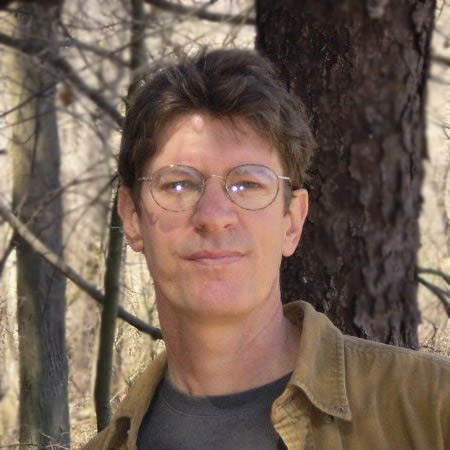September 22, 2021
The criminal legal system has a lot to learn from people who have experienced it directly – particularly when it comes to centering racial equity in our decision making and change-making strategies. Yet efforts by criminal legal system leaders to engage community members with lived experiences of incarceration are often brief, centered on one-way, top-down information exchange or focused on asking for general input. That is why, thanks to funding and support from the MacArthur Foundation’s Safety and Justice Challenge, San Francisco partners launched a new fellowship focused on creating authentic collaborative partnerships that lead to actionable insights between system leaders and people with lived experience.
The SJC Fellowship is an ongoing effort to integrate and strengthen partnerships with impacted people into change efforts that will safely reduce the local jail population and eliminate racial disparities. The San Francisco District Attorney’s Office, in collaboration with local partners at Bright Research Group, designed and facilitated a 6-month fellowship that brought people with lived experiences into the SJC partners’ justice reform efforts. Bright Research Group is a research, evaluation, and capacity-building firm led by women of color that works with systems seeking to advance racial justice through authentic partnerships with impacted communities. Together, we selected an inaugural cohort of fellows to identify innovative approaches and best practices in the legal system. In addition to their own diverse first-hand accounts of the criminal legal system, the fellows bring a combined 34 years of demonstrated leadership and commitment to creating equitable, safe, and just communities.
The Fellowship program was created as a dual capacity-building effort, providing meaningful learning opportunities for both system leaders and fellows. The program design provides intentional space for the exchange of information, ideas, and perspectives. System leaders are challenged to look at communities, the causes of crime, and the impacts of the system in new ways while fellows are exposed to the inner workings of the system and the political, cultural, and legislative factors impacting reform efforts. Alumni from the inaugural cohort of SJC Fellows are currently providing input in the design of the second fellowship cohort that will launch in early 2022.
What can other jurisdictions learn from this effort?
SJC fellows say the program is different from others they have seen. Trust has developed and real practices at the District Attorney’s Office have changed because of the partnerships we have forged. We encourage other jurisdictions to learn more about our program and consider what a fellowship could look like in their community.
How the program works
The program was co-designed by Bright Research Group and the District Attorney’s Office and implemented in stages. Program components include orientation, immersion, and project-based action. Partners participated in weekly meetings between the fellows and the District Attorney’s Office, facilitated by Bright Research Group. Weekly engagements included:
- Opportunities to attend alternative court proceedings;
- Guest speaker presentations;
- Collaborative feedback sessions in which the fellows were presented with current staff projects and provided real time consultancy; and
- Trainings on participatory action research, systems change, and executive coaching.
Each fellow was paired with a system ally who was a member of the District Attorney’s Office staff with the intent to begin building trusting relationships, honest dialogue, and a transparent exchange of ideas. The immersion phase brought fellows and system leaders together in meeting and practice spaces that encouraged information-sharing and inquiry. Fellows asked questions and provided feedback while participating in spaces that are often opaque and inaccessible to people outside the criminal legal system.
During the project activity phase, Bright Research Group provided training on participatory action research and exposed the fellows to the methodologies and skills used in the field of applied research. Together, we identified expanding diversion opportunities as the focus of our research inquiry. The fellows then led a participatory action research project, which included conducting focus groups and one-on-one interviews with approximately 60 people including survivors of crime, formerly incarcerated individuals, system leaders, and community stakeholders.
The project culminated in a report of findings and recommendations intended to support the District Attorney’s Office in expanding access to alternatives to traditional prosecution. The presentation included critical insights about the obstacles and opportunities to expanding restorative justice in San Francisco, and specific recommendations to support the District Attorney’s Office in increasing community trust, acting as a community ally, advancing the expansion of restorative justice, and supporting decarceral approaches within the criminal legal system.
Who are the fellows?
The inaugural cohort of Safety and Justice Challenge Fellows are five community leaders with lived experience with the criminal legal system, deep experience in community-based work, and a commitment to systems change efforts that increase health, safety, and healing.
- Aminah Elster, is a Campaign and Policy Coordinator with the California Coalition for Women Prisoners, a grassroots organization that supports people inside of California’s women’s prisons.
- Philip Jones is a Master’s in Social Work student and a Peer Case Manager in the Peer Mentoring and Support program with San Francisco Jail Behavioral Health Services.
- Aaron Lowers is an educator with Five Keys Schools and Programs in San Francisco, where he serves system-involved students and works to support them as they transition from incarceration through re-entry.
- Viet Mike Ngo currently works as a supervisor for a job program that employs people with barriers to employment at Community Youth Center, a San Francisco non-profit agency that provides academic, career, family, and community supports for a diverse population of high-needs young people.
- Earl Simms is the Bay Area Regional Director of the Timelist Group, a community-based organization focused on providing rehabilitation courses, resource coordination, and housing upon release for incarcerated individuals.

